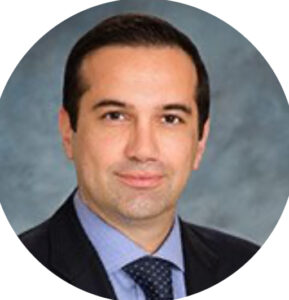Dr. Reza Askari, Endometriosis Specialist
City: Los Angeles, California, USA
Philosophy of Endometriosis Care: Current scientific evidence most strongly supports the coelomic metaplasia theory as the primary explanation for the development of endometriosis.
Our knowledge of endometriosis is growing every day, and I believe epigenetics and immune system factors will become key areas of focus moving forward.
What type of surgery do you perform for endometriosis: Excision
Medication: Effective care for endometriosis requires a comprehensive view of each patient’s health, recognizing that other conditions may contribute to symptoms. While there is no medical therapy that cures endometriosis, complete surgical excision remains the foundation of treatment. After surgery, when necessary, I often recommend hormonal therapy—typically progestins, either orally or through an intrauterine device (IUD)—to help manage bleeding or adenomyosis-related symptoms when present. I generally avoid GnRH agonists and antagonists, as their risk profiles and clinical outcomes do not, in my experience, offer meaningful advantages over progestin-based
Approach to Persistent Pain After Surgery: My goal is always to walk alongside patients through their recovery, not just for the surgery itself, but until they truly feel better
I believe that recovery does not end in the operating room. I stay closely involved with every patient’s care, providing follow-up and support for as long as needed to help them achieve meaningful, lasting improvement.
Every patient leaves surgery with a personalized recovery plan, shaped by their history, examination, and lab findings, with particular attention to any additional pain contributors. I routinely recommend pelvic physical therapy and collaborate with a trusted network of physiatrists to ensure each patient receives truly comprehensive care throughout their healing journey.

